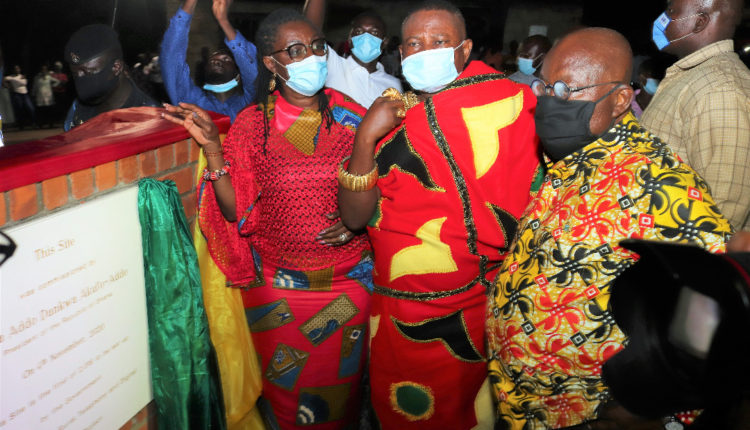Ghana is blessed to have the first site of the Rural Telephony and Digital Inclusion Project, at Atwereboana in the Adansi South District, in the Ashanti Region under the leadership of President Nana Addo Dankwa Akufo-Addo.
The project forms part of government’s commitment to improving the livelihoods of all citizens, bringing governance closer to the people, and bridging the digital gap between the served and the underserved, and between rural and urban communities.
A speech read on behalf of Yahaya Zakaria Osman, Director of Operations of GIFEC at the ceremony said, the need for ICT inclusiveness in the world cannot be overemphasized; adding that “it is for this purpose that the Ghana Investment Fund for Electronic Communications (GIFEC) was set up in 2004, as an agency of the Ministry of Communications, to facilitate the provision of universal access to ICT to all persons for socio-economic development.”
According to her, the mandate over the period of GIFEC has been to bridge the digital divide between the urban and deprived areas of the country, through the provision of electronic communication services and access to promote social and economic development of the people, through best practices.
“The Rural Telephony Project (RTP) is our flagship project in ensuring universal access to electronic communications. This project is aimed at facilitating the extension of coverage of mobile telephony services into areas where access to such services is not adequately available, and where existing licensed operators have proven unwilling or unable to expand their networks, due to commercial or other constraints.
“Over the past couple of years, the purpose of the RTP has been to expand voice service to these communities, with population of less than 1,500, thereby improving their access to quality mobile service. Currently, however, the RTP has been enhanced to provide broadband service due to the evolution of technology.”
She added, “In 2017, GIFEC developed an innovative solution to ensure the deployment of more RTP sites in a sustainable manner, through the tripartite partnership arrangement. This arrangement involves the Mobile Network Operators, private investors and GIFEC, as government’s representative. Whilst GIFEC facilitates land acquisition, waiver on equipment and all customary and licensing, the private investor provides equipment and construction of the sites, with the MNO providing service.
“It is important to note that through this innovation, we have established four hundred (400) Rural Telephony Project sites, serving about 1,200,000 people within 2,000 communities through innovations and partnerships.
“In addition to the Rural Telephony Project, for which we are gathered here tonight, GIFEC is ensuring the effective use of the equipment deployed in underserved and unserved communities, by providing ICT capacity building for all persons in both the formal and informal sector, as well as teachers and students. Over the past four years, a total of 502,600 persons have been trained in ICT programmes. 182,000 children have been trained to provide solutions to social problems through the Coding for Kids project.”
President Akufo-Addo on his part indicated that, his government is committed to ensuring that every Ghanaian, irrespective of tribe, religion, class, location, or ability has access to affordable and reliable voice and data connectivity.
“To this end, the Ministry of Communications and the Ghana Investment Fund for Electronic Communications (GIFEC), working in partnership with mobile network operators and Huawei, is rolling out a Rural Telephony Project to provide data and voice connectivity to two thousand and sixteen (2,016) rural telephony sites strategically located in underserved and unserved communities across the country,” he said.
The President continued, “These sites will provide network coverage to over 300,000 communities, and provide an opportunity for over three million people to connect with their relatives and friends, enabling these communities to be accessible for social, economic, health and educational engagements not only with other parts of the country but also with the rest of the world.”


Comments are closed.